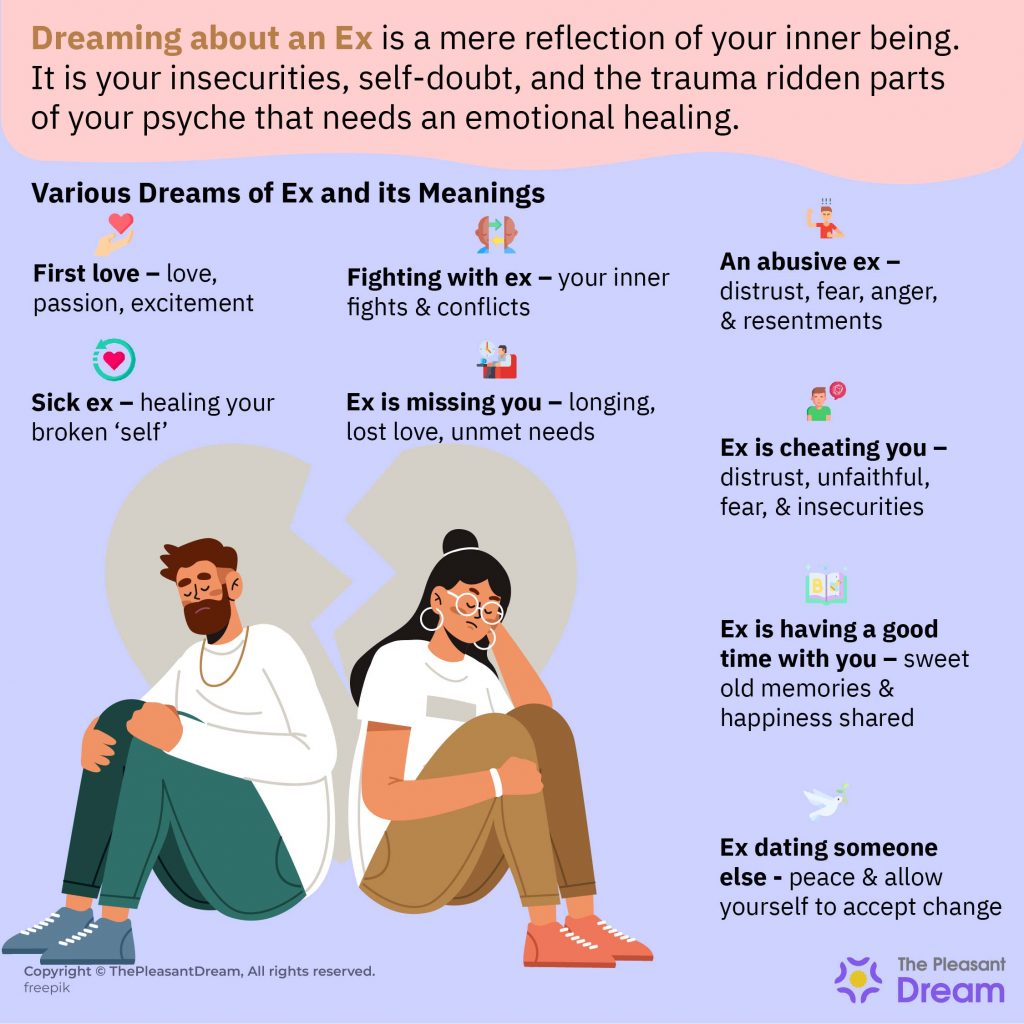Ex-Trump Insider's 'Veiled Threat': Unpacking The Implications
The political landscape is often a tumultuous sea, and few phenomena generate as much ripple as a declaration from an "ex-Trump insider reveals 'veiled threat'." These pronouncements, often shrouded in ambiguity yet potent in their potential impact, capture public attention and fuel endless speculation. Understanding the gravity of such statements requires a deeper dive into the nature of those who make them, the language they employ, and the legal and political ramifications that may follow.
When someone who once held a position of trust within a powerful administration steps forward with a cryptic warning, the world takes notice. The term "ex-insider" itself carries a weight of implied knowledge and a shift in allegiance, transforming a former confidant into a potential whistleblower or, at times, a disgruntled former employee. This article will dissect the layers of meaning behind such a "veiled threat," exploring the linguistic nuances, the legal precedents, and the broader societal implications of these high-stakes disclosures.
Table of Contents
- The Anatomy of an Ex-Insider: Understanding the Former Confidant
- Deciphering the Veiled Threat: Linguistic Nuances and Intent
- The Legal Landscape: Ex Post Facto and Future Implications
- Public Perception and the Shifting Narrative
- The Ethical Dilemma of Former Officials
- The Role of Media in Amplifying or Diluting Claims
- Historical Precedents: Lessons from Past Ex-Insiders
- Conclusion: Navigating the Complexities of Political Revelations
The Anatomy of an Ex-Insider: Understanding the Former Confidant
The very word "ex" in "ex-Trump insider" is loaded with meaning. Does "ex" have a full form? Not in the sense of an acronym, but Google Dictionary has this information about the origin of "ex" from Latin, meaning "out of" or "former." It’s a prefix, as in "ex-president" or "ex-spouse." But what is the origin of the usage as a prefix in words like "ex-insider"? It denotes a person who once held a specific role or relationship but no longer does. In writing, though, the use of "former" doesn't seem so rare, often used interchangeably, yet "ex" carries a sharper, more definitive cut, implying a complete severance.
An "ex-insider" is not merely someone who used to work for an administration; they are individuals who, by virtue of their proximity, were privy to sensitive information, strategic discussions, and the inner workings of power. Their transition from "insider" to "ex-insider" often marks a significant shift in their perspective, motivations, and perceived allegiances. For customers who still visit frequently, we call them existing customers. But what do we call those who used to visit, but are no longer coming back? We might think of terms like "left" or "former," much like an ex-insider has left the inner circle.
When an ex-Trump insider reveals a "veiled threat," the public immediately questions their credibility. What is their background? What was their role? What is their motivation for speaking out now? While the prompt doesn't specify a particular individual, it's crucial to understand that the public's perception of such claims is heavily influenced by the speaker's history. For instance, if the insider has a history of legal troubles or a reputation for sensationalism, their claims might be viewed with skepticism. Conversely, a figure known for their integrity and discretion might lend significant weight to their words.
The profile of an ex-insider can vary widely. They might be high-ranking officials, policy advisors, legal counsel, or even close personal associates. Their reasons for becoming "ex" are equally diverse: resignation, termination, or simply the natural end of a term. Regardless of the specific circumstances, their unique vantage point provides them with insights that outsiders could never possess, making their revelations, particularly those hinting at a "veiled threat," exceptionally compelling and often concerning.
- Unraveling The Mystery What Happened To Dr David Jeremiah
- Jordan Summer House
- Price Is Right Salaries
- Pan Xiaoting Livestream Video
- Sofia Vergara S
Deciphering the Veiled Threat: Linguistic Nuances and Intent
The phrase "veiled threat" is inherently ambiguous. It's not an explicit declaration of harm but a subtle, often indirect, warning or intimation of negative consequences. This linguistic subtlety is precisely what makes it potent and difficult to refute directly. The speaker might deny any malicious intent, claiming their words were misinterpreted or taken out of context. Yet, the underlying message can be clear to those attuned to the political climate.
Consider the power of suggestion. A "veiled threat" operates on the principle of implication, leveraging shared understanding or pre-existing tensions to convey a message without explicitly stating it. This is where the difference between "expect" and "anticipate" becomes relevant. The public might "expect" certain behaviors from political figures, but they "anticipate" the implications of a "veiled threat" based on past actions and the current political environment. The former insider isn't just predicting; they are hinting at knowledge that allows them to anticipate negative outcomes, perhaps even suggesting a causal link they are privy to.
The language used in such a threat is often carefully chosen, employing euphemisms, metaphors, or conditional statements. It might sound like a warning, a prophecy, or even a piece of unsolicited advice, all while carrying an underlying current of menace. This deliberate ambiguity makes it challenging to address legally, as proving intent behind a "veiled threat" can be incredibly difficult. The speaker can always retreat to the defense of "misunderstanding."
In modern political discourse, there's a noticeable shift in vernacular, reflecting what some might call an American dilution of precision in vocabulary (along with spelling and grammar). However, these days, no one pays attention to such niceties, which means that everybody pretty much gets called whatever, and statements are often interpreted through the lens of partisan affiliation rather than strict linguistic analysis. This casualization of language can make it harder to discern genuine warnings from political posturing, further complicating the interpretation of an ex-Trump insider reveals 'veiled threat'.
The Legal Landscape: Ex Post Facto and Future Implications
When an ex-Trump insider reveals a "veiled threat," the immediate question for many is: what are the legal ramifications? This leads us to consider complex legal concepts, including the principle of *ex post facto* laws.
Understanding Ex Post Facto Laws
In legal language, I have come across the term *ex post facto*. This Latin phrase literally means "from a thing done afterward." An *ex post facto* law is a law that retroactively changes the legal consequences (or status) of actions that were committed before the enactment of the law. For example, it might criminalize an act that was legal when committed, or increase the punishment for a crime after it was committed. The U.S. Constitution prohibits *ex post facto* laws, ensuring that individuals are judged by the laws that existed at the time of their actions. Post facto also means "after the fact," so it should be sufficient, but the full phrase *ex post facto* is almost always part of the legal term, emphasizing the retroactive nature.
While an ex-insider's "veiled threat" itself isn't an *ex post facto* law, the concept is relevant when considering potential future legal actions against those implicated by the threat. If the "veiled threat" hints at past actions that were not illegal at the time but might become so under new interpretations or future legislation, the *ex post facto* clause would protect against retroactive prosecution. However, if the threat alludes to ongoing or future illegal activities, then existing laws would apply.
The challenge lies in whether a "veiled threat" can constitute a crime in itself, such as obstruction of justice, witness intimidation, or incitement. These charges typically require a high burden of proof, demonstrating clear intent and a direct link between the words spoken and the intended outcome.
The Challenge of Proving a Veiled Threat
Proving a "veiled threat" in a court of law is notoriously difficult. Unlike an explicit threat, which directly states an intention to harm or coerce, a veiled threat relies on inference and context. Prosecutors would need to demonstrate beyond a reasonable doubt that the speaker intended to intimidate, coerce, or obstruct, and that the recipient understood the message as such. This often involves presenting a complex web of circumstantial evidence, including the speaker's past behavior, the relationship between the parties, and the broader political climate.
The legal system grapples with how to interpret ambiguous language. This is not unlike the phonetic challenge where anticipating assimilation in which the voicing from a vowel following 'ks' makes 'gz,' also applies when the following sound is voiced. Just as sounds blend, meanings can blur. The interpretation of a "veiled threat" depends heavily on context and the listener's perception. This makes it a formidable legal battle, often ending in public debate rather than judicial resolution. The implications of an ex-Trump insider reveals 'veiled threat' are thus often more political than strictly legal, at least in the immediate aftermath.
Public Perception and the Shifting Narrative
The public's reaction to an ex-Trump insider reveals 'veiled threat' is rarely monolithic. It's filtered through partisan lenses, personal biases, and prior beliefs about the individuals involved. For supporters of the former administration, such a threat might be dismissed as sour grapes, a desperate attempt for relevance, or even a politically motivated attack. For critics, it might be seen as further confirmation of their existing concerns, a long-awaited crack in the wall of secrecy.
The framing of the ex-insider also plays a significant role. What do you call a former criminal who has served their sentence and been released from prison? We might think of "convicted criminal," but that might imply the person is still a criminal, rather than someone who has paid their debt to society. Similarly, an "ex-insider" might be viewed as someone who has "served their time" in the administration and is now free to speak, or as someone who is forever tainted by their past association. The nuance is often lost in the public discourse, where labels stick and perceptions harden quickly.
The media's portrayal also shapes public perception. Sensational headlines, selective quotes, and the choice of commentators can amplify or diminish the perceived gravity of the "veiled threat." In an era of rapid information dissemination and fragmented media consumption, the initial narrative often becomes entrenched, making it difficult to introduce more nuanced or contradictory information later. This phenomenon contributes to the polarization of public opinion, where facts are often secondary to confirmation bias.
The Ethical Dilemma of Former Officials
An ex-Trump insider reveals 'veiled threat' also brings to light the profound ethical dilemmas faced by former government officials. On one hand, they have a moral obligation to speak out against perceived wrongdoing, especially if it threatens national security, public safety, or democratic institutions. Their unique access to information places them in a position to warn the public, a duty often seen as paramount.
On the other hand, former officials are bound by oaths of secrecy, non-disclosure agreements, and the principle of protecting classified information. Revealing sensitive information, even in a "veiled" manner, can have serious consequences, ranging from legal prosecution to the erosion of trust in government. There's a delicate balance between whistleblowing and unauthorized disclosure, and the line is often blurry, especially when dealing with ambiguous statements.
Furthermore, there's the question of motivation. Is the ex-insider genuinely concerned about a threat, or are they seeking personal gain, revenge, or political advantage? Discerning true intent is challenging, and the public is often left to speculate. The context of their departure from the administration, their current relationships, and their public statements all contribute to the assessment of their ethical standing. The shift in vernacular over the past 70 years reflects an American dilution of precision in vocabulary, which unfortunately extends to how we categorize and judge the motivations of those who speak out.
The Role of Media in Amplifying or Diluting Claims
The media plays an indispensable, yet often controversial, role in how an ex-Trump insider reveals 'veiled threat' is received by the public. News organizations act as gatekeepers and amplifiers, deciding which statements warrant attention, how they are framed, and what context is provided. The competitive nature of the 24-hour news cycle often prioritizes speed and sensationalism over depth and nuance.
When a "veiled threat" emerges, media outlets face the challenge of reporting on something inherently ambiguous. Do they treat it as a serious warning, a political stunt, or something in between? The choice of headlines, the selection of soundbites, and the commentators invited to discuss the issue can significantly influence public interpretation. For example, a headline emphasizing "threat" will elicit a different reaction than one focusing on "allegation" or "speculation."
Moreover, the rise of social media means that information, including "veiled threats," can spread virally before traditional media can fully vet or contextualize it. This rapid dissemination often bypasses critical analysis, leading to widespread misinformation or premature conclusions. The constant stream of information means that people sometimes give me phone numbers like (xxx) xxx xxxx ext. I was wondering what does this 'ext' mean? It refers to an extension, a way to reach a specific point within a larger system. Similarly, a "veiled threat" is an extension of an underlying message, requiring the public to connect to its core meaning, often without a direct line.
Responsible journalism demands a commitment to E-E-A-T principles: Expertise, Authoritativeness, and Trustworthiness. This means seeking multiple sources, providing balanced perspectives, and clearly distinguishing between fact, opinion, and speculation. When reporting on a "veiled threat," it's crucial to explain why it's considered "veiled," what the potential interpretations are, and what the known facts are that support or contradict the underlying message. Without this rigorous approach, the media risks becoming a conduit for unverified claims, further eroding public trust.
Historical Precedents: Lessons from Past Ex-Insiders
The phenomenon of former insiders speaking out is not new. Throughout history, various administrations have faced revelations from those who once served within their ranks. From memoirs that expose behind-the-scenes machinations to whistleblowers who unveil alleged misconduct, the pattern of "ex-insiders" shaping public discourse is well-established.
Consider the Pentagon Papers, leaked by Daniel Ellsberg, an ex-military analyst, in the early 1970s. This was not a "veiled threat" but a direct exposure of classified information regarding U.S. involvement in Vietnam. While different in nature, it exemplifies the power of an "ex" individual to dramatically alter public perception and political outcomes. Similarly, figures from the Nixon administration, after their departure, offered insights that contributed to the Watergate scandal's unfolding. These historical events demonstrate that revelations from former insiders, whether explicit or "veiled," can have profound and lasting impacts on national politics and public trust.
The lessons from these historical precedents are clear: the words of an ex-insider, particularly one hinting at a "veiled threat," should not be dismissed lightly. While skepticism is warranted, especially concerning motivations and accuracy, the potential for significant revelations demands careful consideration. The challenge for the public and the media is to discern the signal from the noise, to identify genuine warnings amidst the political theater. This often requires a deeper understanding of the context, the individuals involved, and the potential ramifications, moving beyond superficial interpretations.
Conclusion: Navigating the Complexities of Political Revelations
The emergence of an ex-Trump insider reveals 'veiled threat' is more than just a fleeting news item; it's a complex event that touches upon linguistics, law, public perception, and ethics. The nuanced nature of a "veiled threat" makes it particularly challenging to interpret, demanding careful consideration of both what is said and what is implied. From the etymology of "ex" signifying a former status, to the legal complexities of *ex post facto* laws and the difficulty of proving intent, every layer of such a revelation warrants scrutiny.
The ongoing dialogue surrounding these statements underscores the importance of a discerning public and a responsible media. As citizens, we must strive to understand the full context, question the motivations, and evaluate the credibility of those who speak out. We must also recognize the potential for political manipulation and the dilution of precise language in an increasingly polarized world. Ultimately, while the "veiled threat" may remain ambiguous, its existence serves as a potent reminder of the enduring power of information, the fragile nature of trust, and the constant vigilance required to navigate the intricate landscape of political power.
What are your thoughts on "veiled threats" from former political insiders? Do you think they serve a public good, or do they contribute to political instability? Share your perspective in the comments below, and consider exploring our other articles on political discourse and accountability.
- Nautica Malone
- Calico Cat
- Fsi Bloge
- Eddie Phelps Miki Howard A Tale Of Two Legends In The Spotlight
- Alina Rose

What Does Dreaming About Your Ex Mean? Experts Explain 2023

SV5M ‘Cyber Judge’ Card List Revealed! - PokemonCard

220+ Ex Girlfriend Stock Photos, Pictures & Royalty-Free Images - iStock